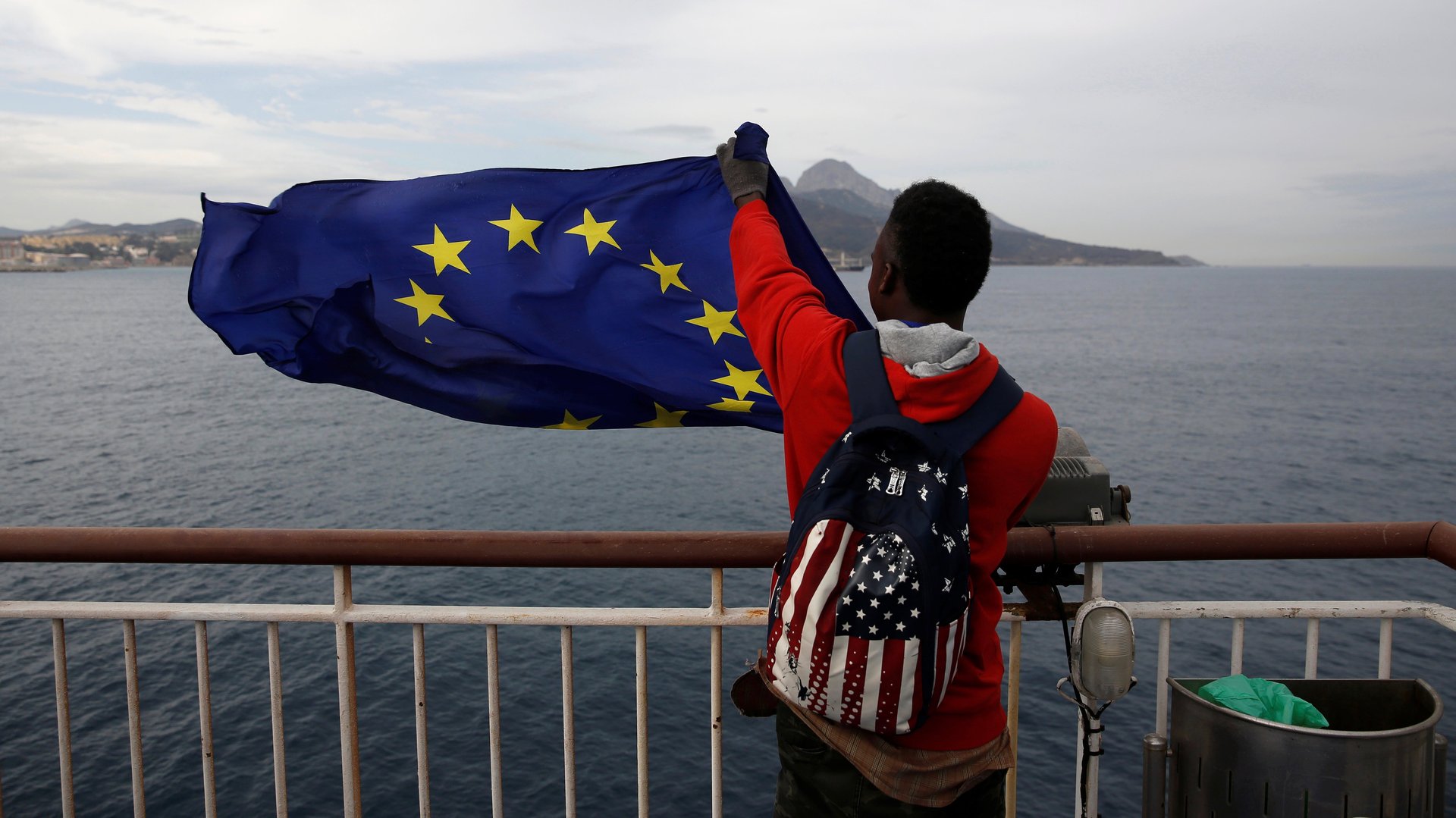Young Gambians are abandoning their risky Europe migration dreams now Jammeh is gone
Now that former president Yahya Jammeh is gone, The Gambia doesn’t seem so bad.


Now that former president Yahya Jammeh is gone, The Gambia doesn’t seem so bad.
Last week, 141 young men returned home, abandoning the illegal, life-threatening “Back Way” to Europe. It was the first time the International Organization for Migration helped repatriate a group of Gambians willing to return home.
The returnees were part of a group of migrants stranded in Libya that included 171 Nigerians. The migrants had no money to continue their journey across the Mediterranean Sea. In Libya, a perilous pit stop to Europe, migrants face the threats of illegal detention, trafficking and the Islamic State.
It was a risk that many Gambians were willing to take, rather than deal with poverty and political suppression at home. Despite a small population of less than 2 million, Gambia is one of Africa’s largest per capita people exporters. Last year, 7% of the migrants who arrived in Libya were Gambian, according to the UN Refugee Agency.
“I would rather die than to return empty handed, but I will go home now and work in my country and die there,” said a 35-year-old electric engineer who used all his savings to get to Libya, leaving behind his pregnant wife and young daughter.
There are 460 more Gambians registered in Libya who want to come home, said interior minister Mai Fatty. Newly elected president Adama Barrow has promised that Gambians living abroad are also his priority, bolstered by aid from Europe.
But Jammeh’s departure after 22 years will not be enough to coax the many Gambians who disappeared via the Back Way. Most Gambian migrants fled for economic reasons—risking it all to reach Europe so they could wire money back home. Despite Barrow’s optimism, replenishing looted state coffers and creating opportunities will take time.
Meanwhile, with the autocratic life behind him, Jammeh also hopes to return to the Gambia to a simpler way of life. The ousted strongman wants to come back to his home village to take up farming.